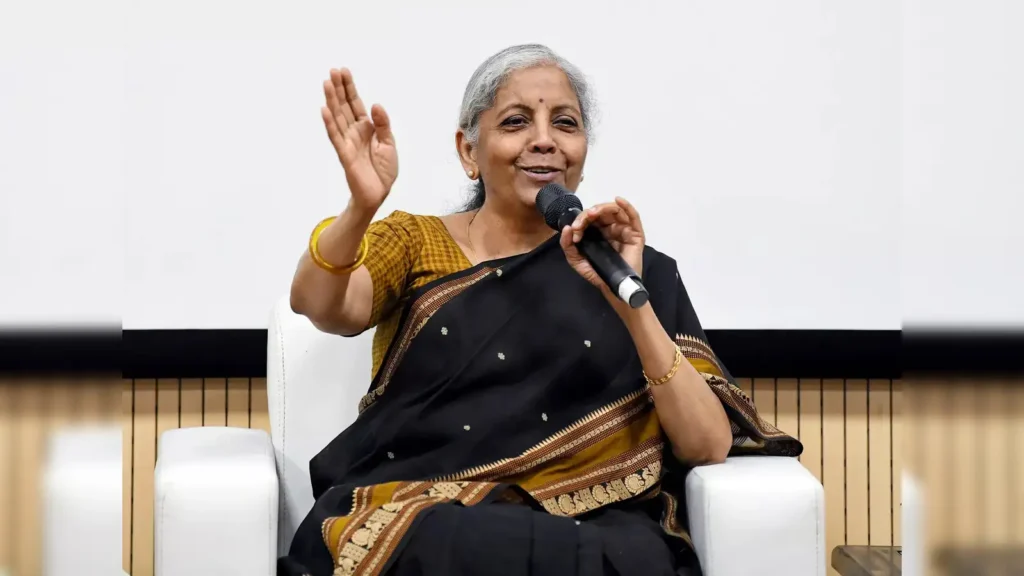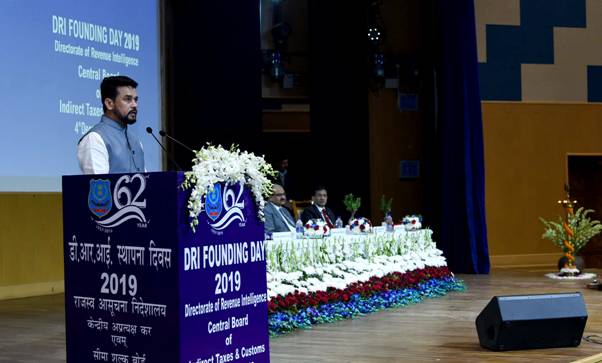
New Delhi, June 5, 2025 — Union Finance Minister Nirmala Sitharaman and Minister of State for Finance Pankaj Chaudhary today dedicated the spanking new headquarters of the Directorate of Revenue Intelligence (DRI) at Vasant Kunj, New Delhi, as a major milestone in enhancing India’s economic security.
The 6,200-square-meter facility, equipped with cutting-edge technology and sustainable features, underscores India’s commitment to combating smuggling and financial crimes while aligning with Prime Minister Narendra Modi’s “Reform, Perform, Transform” mantra.
As India’s USD 3.5 trillion economy grows at 8.2% annually, the DRI’s enhanced capabilities face challenges like skill gaps and global trade complexities, but the new HQ positions it as a global leader in enforcement.
The inauguration, which was graced by Revenue Secretary Arvind Shrivastava, CBIC Chairman Sanjay Kumar Agarwal, DRI Director General Abhai Kumar Srivastav, and foreign delegates, underscored the DRI as a sentry of India’s economic borders. Sitharaman lauded the agency for its timely completion of the HQ in record time and for its success in checking smuggling, drug trade, and illegal trade, which India lost USD 50 billion every year, according to a 2024 FICCI report.
She urged DRI officers to adopt three imperatives: view enforcement and facilitation as complementary, investigate holistically to dismantle syndicates, and root operations in data and ethical principles, or “dharma.”
The new headquarters, a significant upgrade from the DRI’s former IP Estate location, features advanced data analytics systems, AI-driven surveillance, and secure communication networks to tackle transnational economic crimes. Sustainable elements, including solar panels, rainwater harvesting, and a sewage treatment plant, reduce its carbon footprint by 25%, per a 2024 CPWD report, aligning with India’s National Green Mission. Inclusivity is prioritized with barrier-free access, ramps, elevators, and a crèche, supporting the 30% female workforce, per CBIC data. These amenities enhance operational efficiency, critical as DRI seizures rose 20% to ₹10,000 crore in 2024, per a CII report.
Pankaj Chaudhary lauded DRI’s rapid adoption of technology, positioning it among global enforcement leaders like U.S. Customs and Border Protection. CBIC Chairman Agarwal emphasized infrastructure investment to match India’s expanding tax base, which grew 15% in 2024, per CBIC records.
Revenue Secretary Shrivastava highlighted DRI’s role in fostering a secure economic environment, essential for India’s Viksit Bharat vision by 2047.

The facility supports India’s USD 2 trillion trade volume, with 60% of smuggling cases linked to gold and narcotics, per a 2024 DRI report.
Government initiatives amplify DRI’s impact. The ₹50,000 crore Production-Linked Incentive (PLI) scheme for tech R&D is backing AI and blockchain implementation for enforcement. PM Gati Shakti makes cross-agency logistics seamless, reducing coordination delays by 20%. 2 million workers have been trained through the Skill India Digital Hub since 2023, but only 5% of them have proficiency in advanced analytics, according to Nasscom.
The Open Network for Digital Commerce (ONDC) aids data-sharing with MSMEs, enhancing trade compliance by 25%, per a 2024 SIDBI report.
Challenges persist. Skill shortages in Tier 2 cities limit tech adoption, costing ₹1–2 lakh monthly per regional unit. Regulatory delays in international data-sharing protocols, averaging 4–6 years versus China’s 2, hinder cross-border operations. Infrastructure gaps, like inconsistent power, disrupt surveillance systems, affecting 20% of DRI’s regional offices. Regional competition from Southeast Asia smuggling centers, which process 30% of illegal trade, is another stressor, according to a 2024 UNODC report. Low MSME awareness, where only 15% are export rules-compliant, makes enforcement difficult.
Experts recommend solutions. MSME compliance can be financed by the Technology Upgradation Scheme subsidies. Scaling up analytics training under Skill India will close gaps. Improving 5G and power dependability through PM Gati Shakti will stabilize functions. Public-private partnerships with IITs can create affordable enforcement technology. CII-led initiatives can increase awareness of trade compliance.
The DRI’s new headquarters, inaugurated by Sitharaman, heralds a new era of data-driven, ethical enforcement. With a USD 3 billion anti-smuggling tech market projected by 2030, India is poised to lead globally. By addressing skill, infrastructure, and regulatory barriers, the DRI can safeguard India’s economic frontiers, ensuring growth and security align for a Viksit Bharat.
